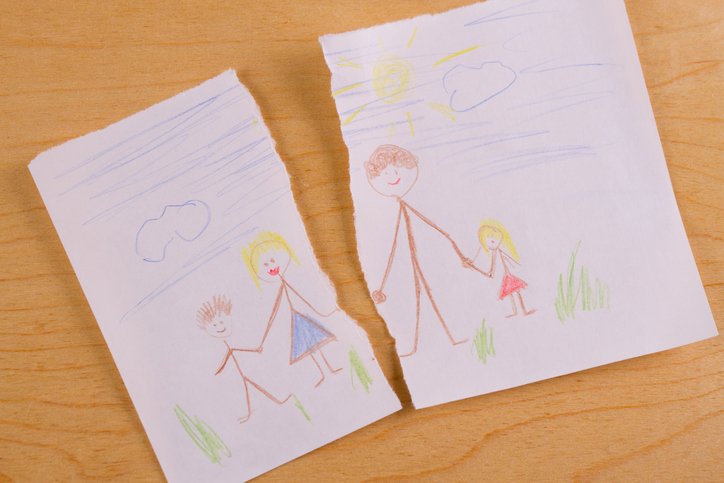(Why Stability and Developmental Stages Matter More Than Splitting Time Evenly)
Introduction: A Different Kind of Fairness
When parents separate, one of the hardest questions is: What’s the ideal split of parenting time? Too often, “fair” gets translated into equal parenting — a strict 50/50 split . On paper, that might seem balanced. In real life, it often leaves children feeling like they live out of a suitcase. Fairness for parents is important, but children may think of this very differently than adults do.
Children don’t measure fairness in hours. They measure it in stability, safety, and belonging. And as kids grow, their developmental stage profoundly shapes how they experience divorce and custody.
At Divorce With Dignity Denver, I work with families to design parenting plans that prioritize children’s needs at every stage of growth. Because the truth is, there’s no one-size-fits-all formula — especially not a rigid 50/50.
Why Shuttling Feels Unfair to Kids
Parents may fight for equal time in the name of fairness, but kids often describe it differently:
- “I feel like a visitor in both homes.”
- “I never know where my stuff is.”
- “It’s exhausting to keep moving.”
Even in the most loving families, constant transitions can create stress and anxiety. Homework gets left behind. Sleep gets disrupted. Social lives get complicated by handoff schedules. Children may feel torn between two worlds rather than rooted in one.
This isn’t about blaming parents who naturally want to be part of their kid’s lives. It’s about recognizing that other factors matter more than symmetry. Kids thrive when they feel secure, not when their lives are divided into equal halves.
Developmental Stages: Why One Size Doesn’t Fit All
Every child’s age and stage changes how divorce impacts them. Custody plans need to reflect this reality.
Infants and toddlers
- Attachment and consistency are critical.
- Separations from a primary caregiver can trigger separation anxiety.
- Frequent, short visits often work better than long, alternating blocks.
Ages 8–11
- This is a tender stage: kids are becoming more aware of the world and their place in it.
- Many experience anxiety during transitions, especially if conflict exists between parents.
- Stability in school, activities, and routines helps them feel safe.
Teenagers
- Peer relationships take center stage, and schedules are often packed.
- Teens may resent rigid custody splits that disrupt social lives, sports, or academics.
- In today’s world, social media and peer pressure add layers of stress that require parental awareness and flexibility.
At every stage, parents need to ask: What does my child need right now to feel secure and healthy? Not: How do we split the calendar evenly?
The Consequences of Ignoring Development
Unfortunately, rigid custody formulas often disregard these developmental differences. Children who are forced into arrangements that don’t match their needs may:
- Show signs of anxiety or depression.
- Struggle academically due to lost focus or disorganization.
- Act out behaviorally as they try to cope with stress.
- Withdraw socially or become resentful of both parents.
These outcomes are not inevitable, but they are common when children’s needs are overshadowed by adult definitions of fairness.
Stay Focused on the Big Picture
It’s important to acknowledge a hard truth: divorce brings consequences, and one of them may be disrupted parenting time. But disrupted doesn’t have to mean destructive.
When parents focus on quality over quantity, they give children something more valuable than an equal number of hours: they give them stability. A child who feels truly at home in one primary residence, while enjoying meaningful time with the other parent, often does far better than one who lives a split life between two households.
This doesn’t mean the non-primary parent is less important. Quite the opposite — it means the time spent together is intentional, nurturing, and free from the stress of constant transitions.
What Parents Can Do
If you’re navigating custody decisions, here are steps that help keep children’s needs front and center:
- Consider developmental stage first. Ask: What does my child need at this age to feel secure?
- Prioritize stability. Protect school, activities, and peer connections whenever possible.
- Be flexible. A parenting plan that works for a toddler won’t work for a teen. Expect to adjust over time and include a commitment to adjust as needed in your parenting plan.
- Communicate with care. Reduce conflict around handoffs; children notice tension and internalize it.
- Focus on children’s needs. Make your time with your child meaningful, not measured. Use virtual options to connect when and how you can.
A Dignified Approach to Custody
At Divorce With Dignity Denver, I guide parents through the hard conversations about custody with one principle in mind: kids’ needs come first. That means looking beyond formulas, considering developmental stages, and crafting agreements that give children stability at every stage of growth.
Conclusion: Fairness Reimagined
Fairness isn’t about a 50/50 split. It’s about creating a life for your child that feels whole, safe, and nurturing — even in the midst of divorce.
Keep the big picture in mind. Development matters more than default formulas. And dignity means making decisions that reflect the real needs of children, not just the preferences of adults.
If you’re facing these questions, know this: you don’t have to navigate them alone. With the right guidance, you can design a parenting plan that honors your child’s needs, respects both parents, and brings peace to a difficult transition.
About the Author

When she’s not working with clients, Caroline is actively involved in community education around peaceful divorce and is passionate about helping families move forward with dignity and stability.


